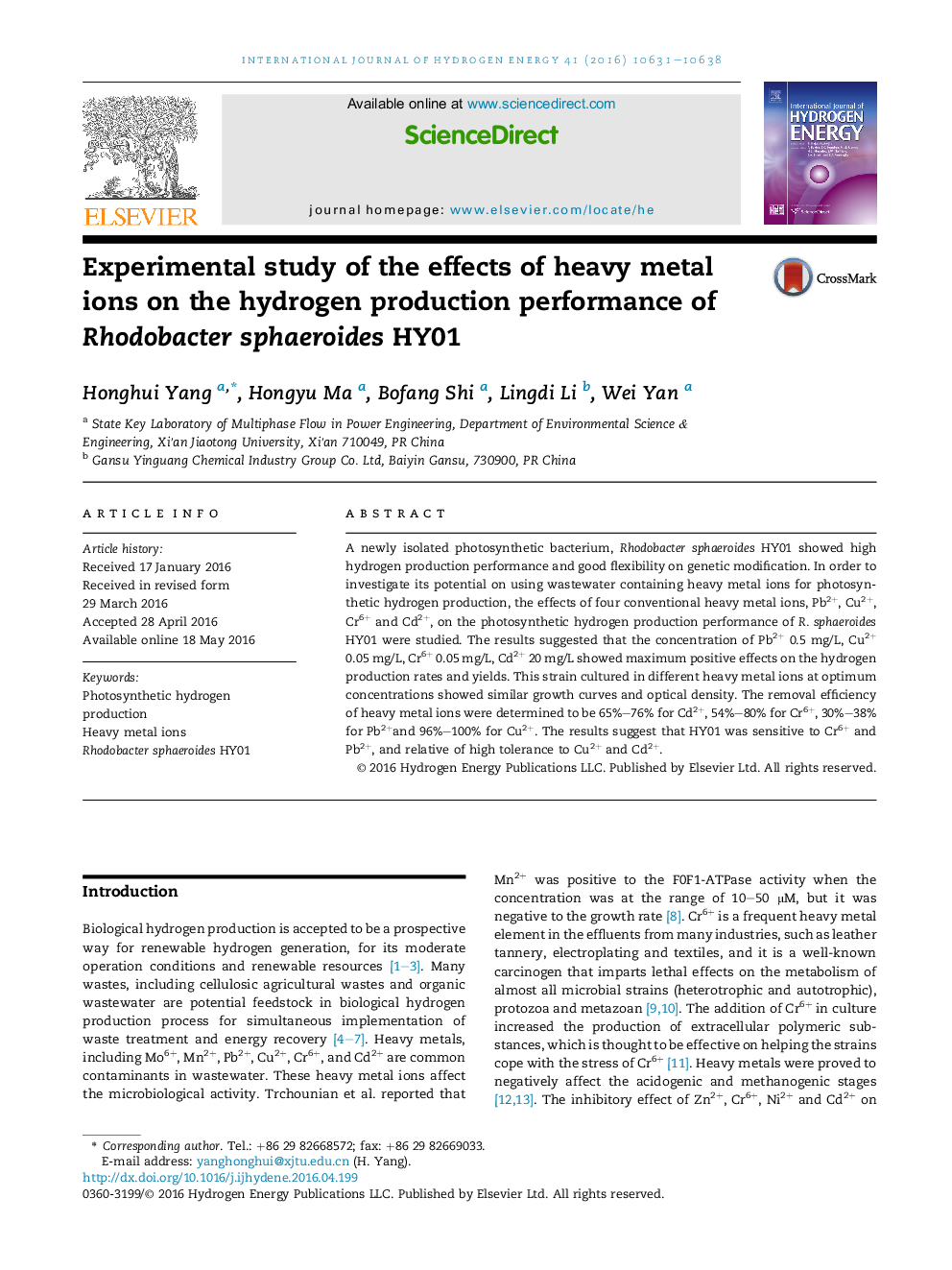| Article ID | Journal | Published Year | Pages | File Type |
|---|---|---|---|---|
| 1276788 | International Journal of Hydrogen Energy | 2016 | 8 Pages |
•HY01 was sensitive to Cr6+(>1 mg/L) and Pb2+(>1 mg/L) on the basis of H2 production.•H2 yield by HY01 was relative high tolerant to Cd2+(<60 mg/L) and Cu2+(<7.5 mg/L).•H2 production and heavy metal ions removal achieved at low metal ions concentration.•nitrogenase was deactivated at high heavy metal ions concentration.
A newly isolated photosynthetic bacterium, Rhodobacter sphaeroides HY01 showed high hydrogen production performance and good flexibility on genetic modification. In order to investigate its potential on using wastewater containing heavy metal ions for photosynthetic hydrogen production, the effects of four conventional heavy metal ions, Pb2+, Cu2+, Cr6+ and Cd2+, on the photosynthetic hydrogen production performance of R. sphaeroides HY01 were studied. The results suggested that the concentration of Pb2+ 0.5 mg/L, Cu2+ 0.05 mg/L, Cr6+ 0.05 mg/L, Cd2+ 20 mg/L showed maximum positive effects on the hydrogen production rates and yields. This strain cultured in different heavy metal ions at optimum concentrations showed similar growth curves and optical density. The removal efficiency of heavy metal ions were determined to be 65%–76% for Cd2+, 54%–80% for Cr6+, 30%–38% for Pb2+and 96%–100% for Cu2+. The results suggest that HY01 was sensitive to Cr6+ and Pb2+, and relative of high tolerance to Cu2+ and Cd2+.
